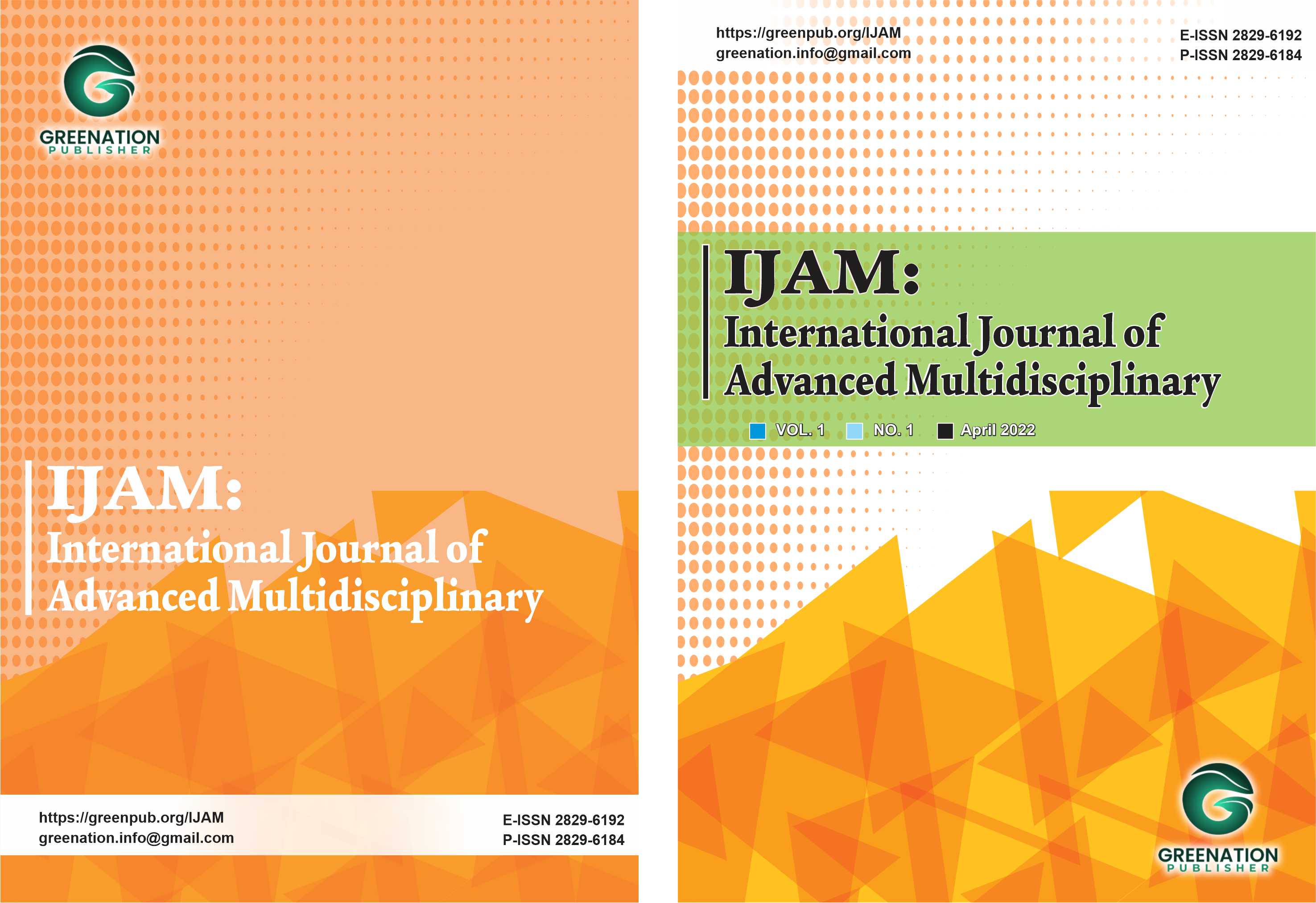Political Communication of The General Election Commission and The Election Supervisory Board in Responding to Allegations of Voter Data Leakage
DOI:
https://doi.org/10.38035/ijam.v3i2.621Keywords:
Political Communication, General Election Commission, The Election Supervisory BoardAbstract
The alleged case of voter data leakage in the General Election Commission's (KPU) Sidalih application occurred ahead of the 2024 elections, the voter data was allegedly traded on BreachForums by an anonymous account. Responding to the alleged case, the political communication of the KPU and the Election Supervisory Board (Bawaslu) through the Twitter (X) social media account is very minimal, even the KPU did not convey its attitude at all on its Twitter social media account. This study aims to determine how the KPU RI and Bawaslu RI utilize Twitter (X) social media as a strategic communication tool and how to utilize Twitter (X) social media in responding to the alleged leakage of KPU's data. The research method used is a qualitative research method with a case study. The results showed that the lack of information about the alleged leakage of KPU data conveyed by KPU RI and Bawaslu RI through their Twitter social media channels, this was also exacerbated by the absence of dialogic communication on uploads related to the alleged leakage. The suggestion of this research is that KPU RI and Bawaslu RI need to optimize their political communication through Twitter social media management by consistently providing the latest information related to the alleged leakage of KPU data as well as building dialogical communication with the public or netizens. In addition, it is also necessary to improve the security infrastructure of the Sidalih application.
References
Anggara, R., Hamdi, R. Al, & Suswanta. (2023). Pemanfaatan Media Sosial Sebagai Alat Komunikasi Strategis Oleh Menteri Di Indonesia. Jurnal IPTEK-KOM (Jurnal Ilmu Pengetahuan Dan Teknologi Komunikasi), 25(2), 241–256. https://doi.org/https://doi.org/10.17933/iptekkom.25.2.2023.241-256
Budiarsa, Y. T., & Pandiangan, A. (2022). Komunikasi Politik di Masa Pandemi: Analisis Isi Unggahan Instagram mengenai Program Pengendalian Covid-19 dan Pemulihan Ekonomi. Jurnal Studi Komunikasi Dan Media, 26(2), 123–138. https://doi.org/10.17933/jskm.2022.4865
Choo, K. K. R. (2011). The cyber threat landscape: Challenges and future research directions. Computers and Security, 30(8), 719–731. https://doi.org/10.1016/j.cose.2011.08.004
Creswell, J. W. (2014). Research Design: Qualitative, Quantitative and Mixed Methods Approaches 4th Edition. California: Sage Publications.
Creswell, J. W. (2016). Research Design Pendekatan Metode Kualitatif Kuantitatif dan Campuran (Fourth). Yogyakarta: Pustaka Pelajar.
Hastrida, A., & Hendriyani. (2023). Pengaruh Komunikasi Dialogis Terhadap Kepercayaan Pada Pemerintah. Jurnal Studi Komunikasi Dan Media, 27(2), 141–160. https://doi.org/https://doi.org/10.17933/jskm.2023.5144
Indrawan, J., Efriza, & Ilmar, A. (2020). Kehadiran Media Baru (New Media) dalam Proses Komunikasi Politik. MEDIUM: Jurnal Ilmiah Fakultas Ilmu Komunikasi, 8(1), 1–17. https://doi.org/https://doi.org/10.25299/medium.2020.vol8(1).4820
Iradat, D. (2023). Kominfo Ungkap Hasil Penelusuran Awal Dugaan Kebocoran Data KPU. CNN Indonesia. Retrieved from https://www.cnnindonesia.com/teknologi/20231204143117-185-1032658/kominfo-ungkap-hasil-penelusuran-awal-dugaan-kebocoran-data-kpu
McNair, B. (2017). AN INTRODUCTION TO POLITICAL COMMUNICATION, Third edition. In An Introduction to Political Communication, Third edition. Taylor & Francis. https://doi.org/10.4324/9780203699683
Naibaho, R. (2023). BSSN Kirim Hasil Investigasi Dugaan Data Bocor ke KPU dan Bareskrim. Detik.Com. Retrieved from https://news.detik.com/pemilu/d-7068681/bssn-kirim-hasil-investigasi-dugaan-data-bocor-ke-kpu-dan-bareskrim
Porumbescu, G. A. (2016). Linking public sector social media and e-government website use to trust in government. Government Information Quarterly, 33(2), 291–304. https://doi.org/10.1016/j.giq.2016.04.006
Raharja, J., Nurmandi, A., & Subekti, D. (2023). Analysis of Information Quality and Data Security in the KPU (General Elections Commission) SIDALIH (Voter Data Information System) Application. International Conference on Human-Computer Interaction, 90–100. Springer, Cham. https://doi.org/https://doi.org/10.1007/978-3-031-35822-7_7
Samad, M. Y. (2021). Optimalisasi Layanan Publik Badan Intelijen Negara Dalam Perspektif Global Cybersecurity Index. Al Ulum Sains Dan Teknologi, 7(1).
Samad, M. Y., Hilman, F., Yakub, A., Yoda, I. A., & Harahap, O. S. (2023). Pemanfaatan Media Sosial Dalam Komunikasi Politik: Propaganda Isu Sistem Pemilu Proporsional. Jurnal IPTEK-KOM (Jurnal Ilmu Pengetahuan Dan Teknologi Komunikasi), 25(2), 257–270.
Samad, M. Y., & Persadha, P. D. (2022). Memahami Perang Siber Rusia dan Peran Badan Intelijen Negara dalam Menangkal Ancaman Siber. Jurnal IPTEK-KOM (Jurnal Ilmu Pengetahuan Dan Teknologi Komunikasi), 24(2), 135–146.
Sevin, E., & Ingenhoff, D. (2018). Public Diplomacy on Social Media: Analyzing Networks and Content. International Journal of Communication, 12, 3663–3685.
Song, C., & Lee, J. (2016). Citizens Use of Social Media in Government, Perceived Transparency, and Trust in Government. Public Performance and Management Review, 39(2), 430–453. https://doi.org/10.1080/15309576.2015.1108798
Subekti, D., Nurmandi, A., Mutiarin, D., Suswanta, & Salahudin. (2021). Analysis of Twitter’s Election Official as Tools for Communication and Interaction with Indonesian Public During the 2019. International Conference on Advances in Digital Science, 1(7), 309–323. Springer International Publishing. https://doi.org/https://link.springer.com/chapter/10.1007/978-3-030-71782-7_28
Sulaiman, A. I. (2013). Komunikasi Politik Dalam Demokratisasi. Balai Pengkajian Dan Pengembangan Komunikasi Dan Informatika, 11, 119–132.
Suud, Y. A. (2023). Data Pemilih Bocor di Situs KPU, Bareskrim Polri Tutup Akses Sidalih. Cyberthreat.Id. Retrieved from https://cyberthreat.id/read/16302/Data-Pemilih-Bocor-di-Situs-KPU-Bareskrim-Polri-Tutup-Akses-Sidalih
Twitter. (n.d.). About your activity dashboard. Retrieved July 7, 2023, from https://help.twitter.com/id/managing-your-account/using-the-tweet-activity-dashboard
Umagapi, J. L. (2023). Kebocoran Data Pemilih 2024. XV(23). Retrieved from https://berkas.dpr.go.id/pusaka/files/info_singkat/Info Singkat-XV-23-I-P3DI-Desember-2023-2044.pdf
Downloads
Published
How to Cite
Issue
Section
License
Copyright (c) 2024 M. Yusuf Samad, Sigit Setiono, Diah Ayu Permatasari

This work is licensed under a Creative Commons Attribution 4.0 International License.
Authors who publish their manuscripts in this journal agree to the following conditions:
- The copyright on each article belongs to the author(s).
- The author acknowledges that the International Journal of Advanced Multidisciplinary (IJAM) has the right to be the first to publish with a Creative Commons Attribution 4.0 International license (Attribution 4.0 International (CC BY 4.0).
- Authors can submit articles separately, arrange for the non-exclusive distribution of manuscripts that have been published in this journal into other versions (e.g., sent to the author's institutional repository, publication into books, etc.), by acknowledging that the manuscript has been published for the first time in the International Journal of Advanced Multidisciplinary (IJAM).






















